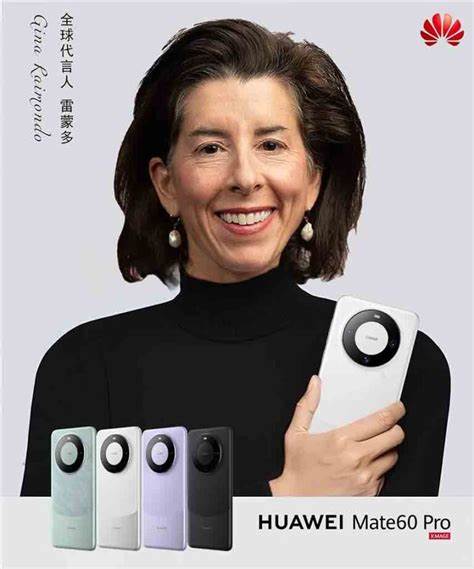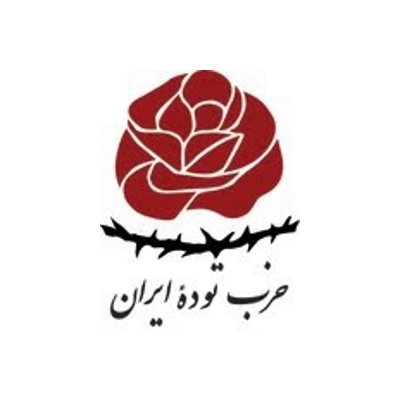- cross-posted to:
- world@lemmy.world
- cross-posted to:
- world@lemmy.world
Propaganda works.
What’s funny is I can’t tell if you’re talking about younger Americans refusing to hate China or older Americans chanting “China Bad!”
Removed by mod
300,000 people are on the organ donor wait-list in China at this very moment.
You’re a perfect example of the power of propaganda lol
Removed by mod
Removed by mod
The US has a ton of problems, I’m not saying it’s a great country to live in necessarily (I wouldn’t move there given the choice). But it’s not a dictatorship where laws are optional for the government.
Maybe freedom doesn’t mean anything to you when you’re not the one being reeducated though.
Removed by mod
Removed by mod
Both tbh
American failures are being used to prop up Chinese successes. This is particularly true in urbanism discussions. China is by no means perfect and thinking that they are is harmful to progress.
Perfection doesn’t exist, but China is on the right track imo
Removed by mod
I’m a fan of their life expectancies surpassing the US - though that’s barely an accomplishment, every developed country seems to have beaten America in that regard lol
Removed by mod
Removed by mod
Removed by mod
This is really just common knowledge at this point.
E: looks like the CCP has even infiltrated the mods of this community.
Its actually all sourced from one single guy who has stated it is his mission from God to bring down China.
It’s common knowledge because propaganda is incredibly effective.
I get paid 100000000 Xi bucks every time I remove a post. Obviously Lemmy is the most important social media platform in the world that China needs to control at all costs. The communists have even banned brainrot racism on this subreddit.
deleted by creator
Really not looking for whataboutisms to justify their atrocities…
deleted by creator
No no no, clearly you’re suffering under Western propaganda. In China there is zero crime and everyone gets a golden car on their 15th birthday. It’s true and If you disagree you’re a propaganda chicken. (/s)
That’s why it costs significantly less to import virtually everything from the opposite side of the planet.
This is not true. It’s so cheap to get the goods here because Canada and USA subsidizes the freight services from taxpayer money.
Removed by mod
Removed by mod
While the Americans are committing a far worse genocide in Palestine, the Uyghurs are definitely being genocided in China.
Removed by mod
Isreal showing us what an actual genocide of a captive Muslim population looks like
…are you under the impression that this is the first genocide in the history of the human race?
Removed by mod
refusing to hate
Lmao
Western propaganda clearly isn’t working on young people.
Removed by mod
Removed by mod
Tiktok is doing its job.
Reminds me of War Game by Philip K. Dick.
Removed by mod
Removed by mod
deleted by creator
Younger people increasingly get their news from social media, and they’re exposed to a more diverse set of news. Meanwhile, older people tend to primarily get their news from traditional media.
There’s a similar trend with support of Israel and Palestine https://www.axios.com/2023/10/26/generational-divide-on-the-israel-hamas-war
This shows just how propagandized traditional media is in the west.
The clash of clans
Social media dominantly uses algorithms that fine-tune user feeds according to what they think will lead to highest engagement and end up becoming personalized echo chambers. They provide the exact opposite of “a more diverse set of news”.
Even with the algorithms tuning people’s feeds the diversity of information and views online is very clearly far higher than it is in traditional media where editors decide what content is published, and how it’s framed. You’re also using a platform that doesn’t use any algorithms to mess with the feed to write all this.
Removed by mod
Removed by mod
Are you talking about China or America
Yes.
We don’t need to forget how great Hong Kong was up until a few years ago.
ah yeah so great https://www.youtube.com/watch?v=iWgQPHKT0wQ
Removed by mod
Yeah, capitalist plutocratic murderous bastards
This kinda looks like a bad poll. The wording seems to setup a bad choice of extremes. The respondent has to either choose “friendly” or “an enemy”. But the relationship between the US and China is a much more complex thing. The US and China are certainly in competition in a number of areas, economically and geopolitically. The induction of China to the WTO in 2001 impacted the US’s manufacturing sector negatively (see: https://www.bls.gov/opub/btn/volume-9/forty-years-of-falling-manufacturing-employment.htm). The US and China are at odds over the fate of Taiwan. But, in spite of all that, the US and China have deep trade links which benefit both countries greatly. And both countries are likely better off than they would be without the other. Global trade is generally positive for the economies involved, though global trade can also fuck individuals inside each economy, including driving wealth concentration and harming the economically disadvantaged and people whose skills don’t align well with the industries their country is focused on.
Trying to boil US-China relations down to either Friendly or “Enemy” misses a lot of the nuance and may mean people aren’t giving an accurate picture of how they view China.
Those options seem fine for a poll imo. If you ask the same question to older demographics and more people pick “enemy”, then isn’t the conclusion in the headline valid?
I know what you’re saying, but it’s still a shitty poll. I think people in the past were way looser with the word enemy. Everyone was an enemy, the Russians, communism, drugs, immigrants poverty… everything was a fucking enemy that needed a war.
So, even though just as many people might distrust China the language has changed and we wouldn’t call them “enemy”.
The Chinese government is authoritarian, evil and awful but I still wouldn’t call China an “enemy”. Because life isn’t black and white, and once you call somone an enemy you’ve shut off your brain and nothing good will come out of it.
Removed by mod
Removed by mod
Removed by mod
A lot of nuance will be missed without some gradation between “I <3 China” and “Down with Pooh!” For example, if we added “Slightly favorable”, “Neutral”, and “Slightly unfavorable” we would begin to see just how favorable younger generations are. Rather than presume there is a deep divide on trade policy, if two bars are almost equal, we may see they are largely neutral. Similarly we could see just how favorable their views of TikTok really are by looking at the spread between neutral to “I <3 China!”
I’m neither a friend nor an enemy to most people in the world.
But when it comes to orgs, I’m an enemy of most od them, and definitely an enemy of every State.
Removed by mod
No CPC ever sold off my future to fund forever wars
I visit China frequently for work and feel that the impression most older Americans have of China is incredibly out of touch. The traditional media portrayal of the country is definitely a part of this. Yes, it’s certainly an authoritarian state, but this doesn’t change whether the people are nice or what they want in life.
Removed by mod
I think it’s probably better to simply say that “authoritarian” is a buzzword, though your implied argument that all states work by exerting authority on (at least some portion of) their population is certainly true. Anyone who uses a term like “authoritarian” rather than even a marginally more-descriptive negative term like, idk, “bureaucratic” or “state capitalist” (which gets misused, but I digress) is immediately demonstrating themselves to have untrustworthy judgement on the topic
maybe bring back totalitarian and use it against countries like the US? have a word that, like Huey P. Newton said regarding coining the term ‘pig’ for police, “highlights the contradiction”, in this case, between the selective usage of a word and it’s inherent meaning, none of which is understandable without contradictions from a prescriptive linguistic context
You are probably right, I was really just trying to talk about how, as it currently stands, the people who use the term are basically just expressing either that they fell for a thought-terminating cliche or are expecting their audience to fall for it.
Removed by mod
Authoritarianism was a bullshit term invented by child-fucker libertarians to frame themselves as being the good guys.
Removed by mod
Hot take. What’s the eli5 behind the idea?
Removed by mod
the state maintains that this is a moral and legitimate use of force: that it has the authority to do this.
I don’t necessarily agree with “moral”. In western democracies laws and use of force doesn’t legitimize itself by a call to morality usually. Just using some kind of authority, doesn’t make a government authoritarian by any common definition of the word.
Removed by mod
It absolutely does imo, it legitimises itself through an appeal to an underlying moral framework.
Yes, but very indirectly. We don’t have a “moral police”, but one that enforces laws which are, as you say, legitimized by the people as a sovereign.
So you don’t see police stopping people on “moral grounds” in some vague interpretation.
What about abortion? Tracking if women are pregnant and hunting them down if then stop being pregnant.
Removed by mod
And every functional family.
wait i have something relevant to say too…
All happy families are alike, all unhappy families are unhappy in their own way. — Anna Karenina
It is authoritarian to ask your children to go to bed on time
no I think it’s, um actually, only when parents tell their kids in china / s <— to indicate it’s sarcasm
Traffic lights in China is a sign that the CPC will go to extreme lengths to micro manage traffic and human movement.
Removed by mod
That makes no sense.
Removed by mod
I’ve been once for work. Didn’t have an issue with anyone there. I live in Australia now and a few of my friends are Chinese. In fact, I’ve had 2 Chinese really good friends / best friends
None of them agree with the government at all
The kids are alright
Isn’t it a general trend that younger people, on average, are less xenophobic / racist / bigoted than the previous generation? I also remember reading somewhere that younger Chinese people are friendlier to Japan, South Korea and the US than their parents.
My company has an office in China and I’ve been there many many times.
Chinese people are like all other people - same needs, same hopes and dreams, same fears, same drivers. In the city where our office is located, they are extremely hard working and want to ensure a better future for their family. Just like most American cities.
Their city is very high tech, moreso than many American cities because they skipped a lot of legacy technology.
They don’t necessarily subscribe to the same moral/value system as Americans, for example they often see copying each other’s ideas as a compliment whereas Americans see it as stealing. Kind of like - if it’s possible to copy, then it’s fair game - so don’t make it possible if you don’t want it copied. Perhaps that drives a different kind of innovation.
Obviously there are many more cultural differences. But as a people, we are all essentially working with the same needs.
All that being said I don’t appreciate the great firewall when I’mthere, the censorship, and the fear they have about discussing banned topics. I don’t appreciate the high-tech security cameras at every corner, or all the tracking of activities. The younger generations tolerate this for now because they are wealthier than their parents and told to cooperate, but that may not hold long term.
Removed by mod
, but at what cost?
“…and here’s what we need to do about it.”















